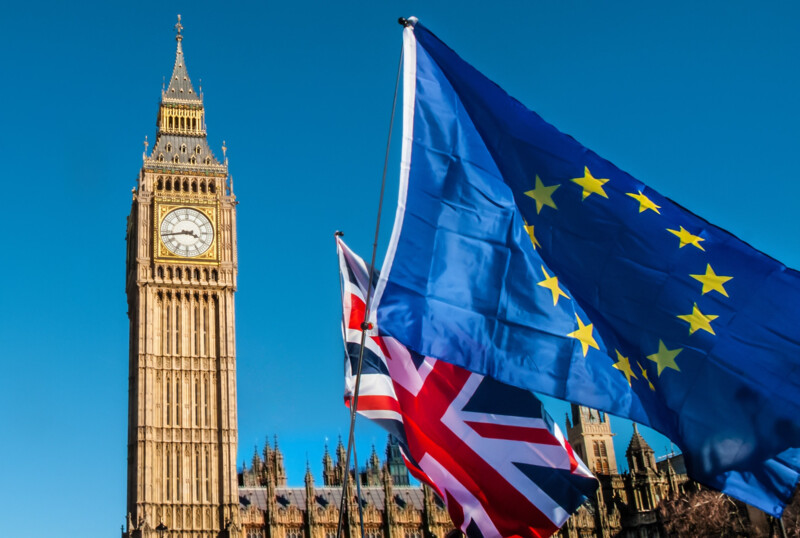Le Brexit a provoqué une « perturbation majeure » du commerce entre le Royaume-Uni et l’Union européenne. C’est en tout cas ce que révèle une récente étude. Alors qu’il était stable depuis 2013, le nombre de flux vers l’UE a chuté brutalement en 2021.
Les PME britanniques découragées par les nouvelles formalités administratives
En décembre 2020, le Royaume-Uni et l’UE ont signé un nouvel accord de « commerce et de coopération » établissant des régimes préférentiels dans des domaines tels que le commerce de marchandises et de services, le commerce numérique, les marchés publics, le transport et l’énergie. Mais cela n’a pas suffi à maintenir l’activité à l’exportation des petites entreprises britanniques, notamment en Europe.
Alors que le Brexit devait les libérer, celles-ci ont été confrontées à des lourdeurs supplémentaires. Conformément au calendrier prévu par les autorités britanniques, des déclarations de douanes complètes, plusieurs contrôles et l’exigence d’une notification préalable à l’importation de produits sanitaires et phytosanitaires sont introduits progressivement depuis le début de l’année.
Un rapport publié en février 2022 par la Public Accounts Committee, la commission chargée de la surveillance des dépenses publiques, note que la sortie du Royaume-Uni de l’UE conjuguée à la pandémie de Covid-19 a eu un impact sur la baisse des échanges. Il souligne que le commerce total de marchandises entre le Royaume-Uni et l’UE était inférieur de 25 % au 1er trimestre 2021 et de 15 % au 2ème trimestre 2021 par rapport aux mêmes périodes en 2018.
Ces chiffres ont été complétés par une nouvelle étude de la London School of Economics selon laquelle le nombre de flux vers l’UE affiche une forte baisse en 2021, alors que la courbe des flux vers le reste du monde est restée relativement stable sur cette période.
« Certains marchés se sont tout simplement arrêtés », rapporte Thomas Samson, professeur à la London School of Economics.
Un impact net sur l’économie britannique
L’étude réalisée par la London School of Economics révèle que le Brexit a eu un impact net sur l’économie britannique et plus précisément sur les exportations vers l’UE.
Alors que le choc brutal sur les exportations enregistré en janvier 2021 était perçu comme un rattrapage suite au mouvement de stockage observé après le Brexit, Thomas Samson explique que l’étude a permis d’identifier « des signaux clairs que les exportateurs ont été affectés », mais « cela n’apparaissait pas dans les données agrégées ».
Si le Brexit a impacté lourdement les exportations du Royaume-Uni, l’effet sur les importations est d’autant plus visible par rapport au reste du monde. Cela s’explique principalement par le fait que certaines entreprises européennes considèrent le marché britannique comme trop coûteux et ont décidé de se retirer. Dans le même temps, les entreprises britanniques estiment que les produits européens ont perdu en compétitivité depuis la mise en place des formalités douanières. Ces nouvelles mesures ont pu inciter les PME britanniques à se tourner vers d’autres fournisseurs aux tarifs plus avantageux.
